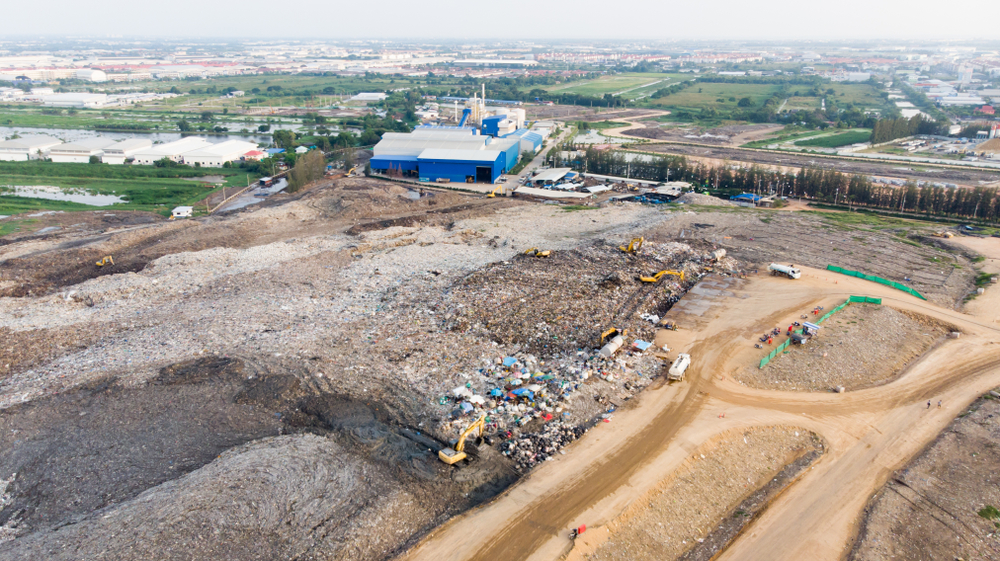Australians send around 20 million tonnes of rubbish in landfills each year. This massive amount of waste includes different types, yet all of them are generated in households and commercial establishments.
You notice your bins are overflowing with garbage, so you pick it up and empty it to the nearest dumpster. Offices and other facilities will also fill up their rubbish bins eventually. A few days later, trash pickup trucks will collect your rubbish and send them to designated disposal areas —the landfills.
A landfill separates massive amounts of waste from the environment, thereby minimising the chance of soil and water contamination. But what types of rubbish are used and accepted in landfills?
To answer the question, let’s enumerate the types of waste accepted and prohibited from landfills.
Accepted Waste
Basically, the following types of waste are accepted at landfills for disposal:
- Household rubbish
- Green waste (tree and yard trimmings)
- Concrete and asphalt
- Old/Broken furniture
- Construction, demolition, and renovation waste
- Soil and dirt
Construction waste includes a wide range of rubbish, from wood, metal, roofing, and plastics. However, landfills and dumpsites in local governments have policies that restrict or limit the tipping of particular construction waste. That’s why they undergo further classification processes and sorting.
The following are the types of waste accepted for recycling and proper handling, and must be put in designated areas within the landfills:
- Metal scraps, roofing
- Appliances (without refrigerants and other chemicals)
- Electronic waste (from offices and residents)
- Tires
Since these types of rubbish have materials that could potentially contaminate the environment, they are most likely recycled. Recycling facilities will take as much reusable material as possible and refine them as raw materials to be used for manufacturing.
These are the types of waste that are not accepted and should not be tipped at landfills:
- Hazardous waste
- Waste that contains more than 1% friable asbestos
- Chemicals
- Fuels and oils
- Detergents, cleaners, bleach
- Refrigerants
- Pesticides
- Acids
- Paints
- Auto body shredder waste
- Explosives
- Soil with high levels of contamination
- Heavy liquids (mercury)
- Nuisance dust
- Untreated infectious waste
- Chemically treated wood waste
These toxic wastes can potentially contaminate the waterways and the nearest environments from landfills. The safest way to dispose of toxic and harmful substances is to sort them out and send them to NSW EPA compliant facilities that will take care of the disposal processes.
This will make sure that all the materials are isolated from the environment, and leakage or spillage is prevented. You don’t want to find harmful chemicals in your drinking water or garden soil, where vegetables could absorb such materials and bring them to your plate.
Related: Items that Should Never be Thrown in a Dumpster
An Eco-Friendly Approach
You can choose to tip your rubbish in a local recycling dump. But the toil of sorting out heaps of rubbish accordingly and hauling them in a truck can be challenging, notwithstanding the cost of fuel and other unexpected expenses.
If you find the process tedious, then relying on a rubbish removal service is the best option. Paul’s Rubbish Removal will give you the convenience and the much-wanted peace of mind as we take all your waste at your disposal. Now you don’t have to break a sweat lifting and stressing out in traffic.
Paul’s Rubbish Removal is a reputable rubbish removal company in Sydney that offers this service. We play a huge role in preserving the environment. That’s why we tailor our methods for efficient and safe rubbish disposal. We want to divert as much waste from landfills as possible and make sure that all of the rubbish we collect are recycled or disposed of in the most eco-friendly method.
Call Paul’s Rubbish Removal in Sydney on 0407 125 125 for a cheap and well-priced rubbish removal service.







